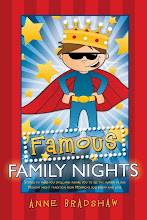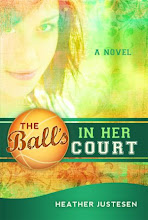by Rebecca Talley
As writers, we use words all the time. We string them together to make sentences and then weave those together to make paragraphs and, eventually, we create stories from them. The words we choose to use will have an effect on those who read them. We must carefully select words to create the exact feeling, emotion, or sense we want for our stories.
In the English language we have so many words from which to choose. Crack open a dictionary and you can find thousands and thousands of words. we even have a thesaurus to help us find similar words that may convey a different feeling. With all of these words at our disposal it seems that we would be able to use a specific word to describe what we want to say. Some words have lost their power simply because they've been overused. What exactly does beautiful mean? We've used it in some many contexts and to describe such a myriad of things, it has lost its true meaning.
Why do people resort to profanity or even words such as stupid or dumb, when there are a vast array of words we could use to describe exactly what it is we want to convey?
There's an old saying, "Sticks and stones may break my bones, but words will never hurt me." I strongly disagree. Words stay with us. Words have power. And words can hurt. For example, watch this clip and tell me, how does the use of the word retard affect you? I know how it affects me because I have a son that will likely have intellectual disabilities.
We need to carefully consider the words we use, in our writing and in our everyday lives, because words have power.
Tuesday, August 24, 2010
Words Have Power
Posted by Rebecca Talley at 11:17 AM
Labels: coincidence in writing fiction, Jennifer Aniston, Using Words, words
Subscribe to:
Post Comments (Atom)

















3 comments:
I recently read a book (Gone by Michael Grant) that had this one part: The girl was being forced to call her autistic brother a retard. By forced, I mean the guy would kill her if she didn't. And she was so scared that she did.
And she felt so bad about it after.
So, it had hurt her more to say it than it had probably hurt her brother to hear it.
So I do agree with you. But I also disagree.
AGREE: AS writers, you're words are supposed to mean something. Maybe not individually, but as a whole. So the words, sometimes, are supposed to hurt.
DISAGREE: If you are so sure about who you are, and you love yourself, words won't mean anything to you. They're just sounds that have a meaning that doesn't affect (effect?) you.
But interesting point.
And I see what you mean.
I was told years ago that I'd never be worth much and no one would ever want to marry me. Those words have stuck with me for many, many years and they affected me. the pain from a slap in the face is soon forgotten, but the pain associated with someone's words is not. Words can be used in so many ways to uplift, to heal, to love, but they can also be used as weapons. As writers, we need to be sure of the purpose of our words.
And, even though I am comfortable with who I am, I am not immune to hurtful words. And I am certainly not immune to words used to degrade people with intellectual disabilities, especially when used in the flippant way that Jennifer Aniston used her words.
The phrase "strong language" never meant much to me, because ANY words can be strong depending on context and who the words are directed to. Aniston's slip was thoughtless, certainly not something anyone conscious of being on national TV should say, however she speaks in private. I wouldn't restrict anyone's right to say whatever they want, but that doesn't mean we can't EXPECT decency in language and put the pressure on people to have some sensitivity.
Post a Comment